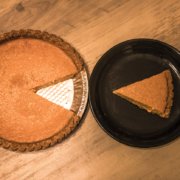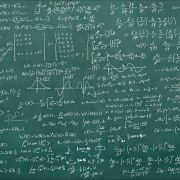The math section makes up half of your total SAT score, so success is vital for those hoping to get into a top college. Bad news: we can’t wave a magic wand and improve your math score. Good news: we’ve got SAT math strategies tailored to help you hit your goal scores.
What is your math score goal?
How you’ll approach SAT math prep will differ based on your goal score. After all, someone hoping to hit 800 (or get really close) will need to strive for perfection; someone hoping for a 600 can afford to miss quite a few questions and still hit that goal.
We’ve divided our strategies into two groups: strategies for good scores and strategies for really good scores.
SAT Math Strategies for Good Scores
If your goal is in the 600-650 range, you can afford to miss around one-fourth to one-third of the questions on the math sections—you don’t have to try to get every question right. In fact, if this is your goal, you probably shouldn’t try to get every question right.
- Focus your prep on getting the most bang for your buck- About 1/3 of the math section focuses on just three question types: solving single variable equations; defining and interpreting linear functions; and ratios and proportions. Since there are more questions on these topics, really mastering these types of questions is going to net you a bigger score boost than you’ll see if you spend a lot of time on trickier concepts that don’t appear as often. For example, you’ll likely only see one question on any given math test on lines and angles—in fact, you may see none—so it’s not really worth your time to focus a lot of effort on learning to answer questions about lines and angles.
- Gather the low-hanging fruit- Make sure that you get to every question that you can answer before you spend time struggling with the harder questions. If you read a question and go “huh?”, skip it and move on. If you have time left, you can always come back to it; but if you spend a bunch of time trying to figure it out, you’re potentially missing out on two or three easier questions that you could have gotten correct in that same amount of time.
- Pace yourself the right way.Let’s consider the calculator math section. This section has 31 questions to complete in 45 minutes, which works out to just under a minute-and-a-half per question, right?WRONG!The math multiple choice questions are arranged roughly in order of difficulty. With few exceptions, the first 10 multiple choice questions will be easier than the last 10 multiple choice questions. Since you only need to answer two-thirds to three-fourths of the math questions right to reach your score goal, you shouldn’t worry too much about hitting the last few questions—they’re likely to be pretty time-consuming and difficult to answer correctly. You can better utilize that time by giving it back to the earlier questions on the section, which you’re more likely to get right anyway.Let’s say you decide to focus your energy on just the first 80-ish percent of the questions on the calculator section. Now your 45 minutes can be stretched across just 25 questions, giving you an extra 15 seconds to use on each question.
- When all else fails, plug and chug.One benefit of a multiple choice test is that you know the right answer is there in front of you. After you’ve gathered all of the low-hanging fruit, if you find yourself stuck on a multiple choice question, plug and chug: try out each available answer choice until you find the right one. This can be pretty time-consuming, so save this method for those questions that you just can’t answer any other way and be sure to tackle these questions at the very end!
For REALLY Good Scores on the SAT Math Section
If your goal is in the 750-800 range, you can’t afford to miss much—if anything. Depending on the test form, you can sometimes get an 800 even if you miss one or two questions, but there’s no guarantee. On other test forms, missing just one question can drop your score by 20 points. So when you’re striving for a top SAT math score, you have to try for perfection.
- Master everything.Since you need to be able to answer every question correctly, you need to master every math topic on the SAT—even the most complex ones. Whereas a student with a lower goal score can afford to narrow SAT prep focus on certain areas, a student with a near-perfect goal score has to include all math topics in SAT prep.
- Practice extensively and review with purpose.Over preparation is key to success for students who want a perfect score. Students should take plenty of practice sections and review them with purpose. Here are some tips to make the most of your math practice review.
Focus on timing.
Since you can’t afford to miss a question, you also can’t afford to waste a single second on the SAT. Try out different SAT math strategies that focus on pacing to perfect your math performance so that you have enough time to tackle every question on the test.
Getting SAT Math Help
Following these strategies is a great start to achieve a good SAT math score. It can also be beneficial to get some additional help to make sure you maximize your test prep efforts. If you’d like to get a free consultation for personalized SAT prep, reach out to your local C2 Education center today.








